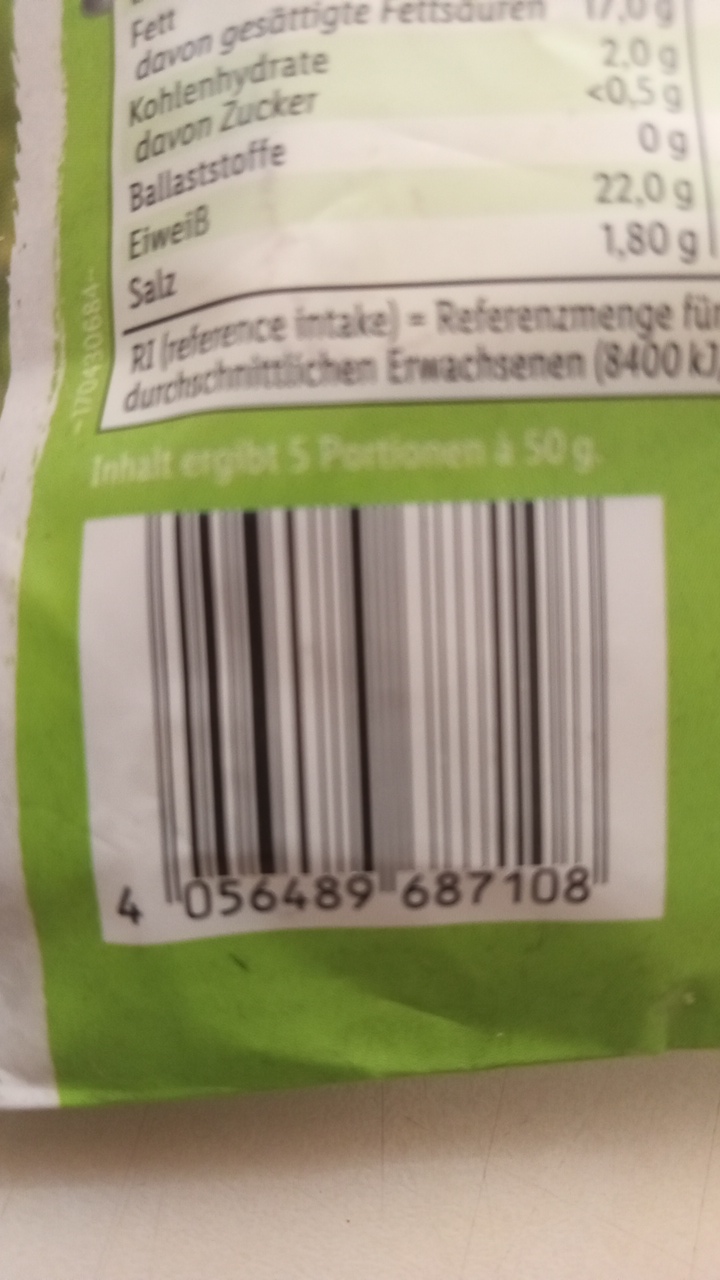
Barcode: 4056489687108
None
HALAL
📝 Reason: Based on the provided ingredient list—all generic nutrients in German with no E-codes, no animal-derived or doubtful contents noted, and per provided halal/haram/doubtful ECode mapping—this product is Halal (0). Key Islamic food authorities (Quran 5:3, IFANCA) require no prohibited ingredient for halal status. These ingredients align with halal standards.
📄 Certificates: Vegetarisch
Ingredients:
Details
Understanding the Halal Status of None
For consumers seeking Halal products, understanding the ingredients and their origins is essential. In this guide, we explore the status of the product known as None. According to the provided ingredient list, None is Halal. Here’s an in-depth look into its components and why they are compliant with Halal principles.
Halal Status Explained
The determination of Halal status is based on various factors outlined by Islamic dietary laws. As referenced in the Quran (5:3), any product must not contain prohibited (haram) ingredients to be considered Halal. In the case of None, the ingredient list contains no haram substances.
Ingredient Breakdown
The complete ingredient list includes:
- Fett
- Gesättigte fettsäuren
- Kohlenhydrate
- Zucker
- Ballaststoffe
- Eiweiß
- Salz
Each ingredient listed fulfills the Halal criteria and is consistent with the guidelines established by prominent Halal certifiers like IFANCA.
Detailed Ingredient Analysis
- Fett: This term refers to ‘fat’ in German. The Halal status depends on its source. If derived from plant or Halal-slaughtered animals, it is Halal. There is no indication of non-Halal origin.
- Gesättigte fettsäuren: This translates to ‘saturated fatty acids,’ which typically intimate the composition of fats rather than a specific source. They are Halal as long as their origin complies with Halal standards.
- Kohlenhydrate: ‘Kohlenhydrate’ translates to ‘carbohydrates.’ These are always Halal as they come from plant-based sources like grains.
- Zucker: Sugar, or ‘Zucker,’ is generally Halal when sourced from cane or beet. The concern arises only if it’s processed with non-Halal bone char, which is rare and not the case here.
- Ballaststoffe: This means ‘dietary fiber.’ Fibers come from plants and, thus, are always Halal.
- Eiweiß: Translated as ‘protein,’ this ingredient can be of animal or plant origin. Since there are no animal-derived substances listed, it is assumed to be plant-based and Halal.
- Salz: Simply ‘salt,’ and it is universally considered Halal.
Conclusion on Halal Status
Based on the comprehensive ingredient analysis, None is recognized as Halal. All components in the product align with the certification requirements set by key Halal authorities. Moreover, the absence of any dubious ingredients supports this classification.
Certifications and Brand Context
While this product is labeled as vegetarian, it is important for consumers to ensure compatibility with their dietary needs. Being Halal, it maintains the integrity required by many Muslim communities worldwide and complies with international standards. Understanding these certifications and the disclosure of ingredients is crucial for informed consumption.
Final Thoughts
When considering Halal products like None, always keep an eye on the ingredients and certifications. This diligence guarantees that you align your dietary choices with your beliefs and standards. For an in-depth look at various products and their Halal statuses, stay tuned!
